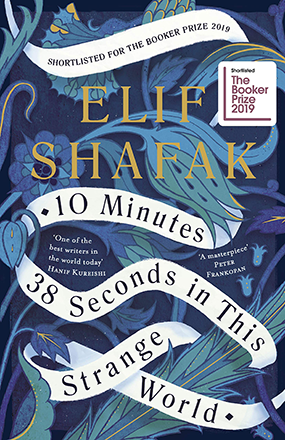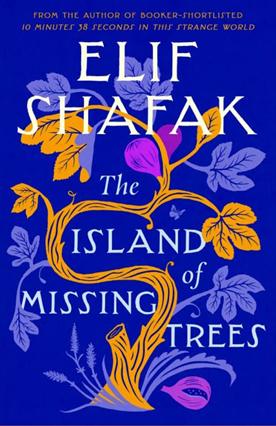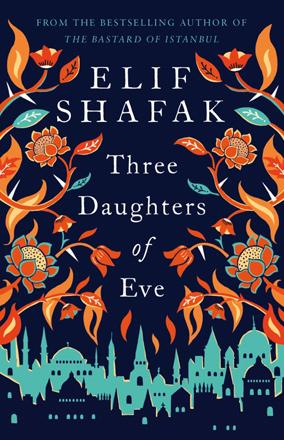You are here
There is truth in fiction
By Sally Bland - May 10,2020 - Last updated at May 10,2020

10 Minutes 38 Seconds in This Strange World
Elif Shafak
London: Viking/Penguin Random House: 2019
Pp. 312
Imagination figures prominently in Elif Shafak’s fiction, whether in how the British-Turkish author tells her stories, or as a trait of her individual characters.
A mix of realism and fantasy enables Shafak to vividly recreate long-ago worlds, as in “The Forty Rules of Love” and “The Architect’s Apprentice”, and equally to depict contemporary society.
In her latest novel, imagination is pushed into a whole new realm, namely, the “10 minutes 38 seconds” during which a dead person’s mind still functions post-mortem.
In Shafak’s rendering, imagination is neither divorced from scientific knowledge, nor an escape from reality, but rather reveals lesser-known aspects of reality or previously unthought-of possibilities. As she declares in a note to the reader: “Many things in this book are true and everything is fiction”. (p. 307)
The concept of post-mortem consciousness structures the novel, which begins with the death of Leila, a prostitute in Istanbul, her body unceremoniously thrown into a rubbish bin. In Part One: The Mind, successive chapters record her thoughts and memories during the “10 minutes and 38 seconds” left to her in this world. “Although her heart had stopped beating, her brain was resisting, a fighter till the end”. (p. 11)
Starting with her birth, one follows Leila’s childhood in Van in Eastern Turkey, learning what made this brave, intelligent and creative girl flee to Istanbul at the age of 17, where she was sold into prostitution, and her life thereafter.
Throughout this account, Shafak shines a harsh light on the cruelty inflicted on women, on those who are different and those who simply ask inconvenient questions. There is the deception forced upon Leila’s young mother, driving her into mental illness; the birth of her Down’s Syndrome brother; her repressive school experience; her father’s increasingly draconian rules as he becomes a fundamentalist, banning TV, music and reading. Most damaging of all is her sexual abuse by her uncle from the age of six, which the rest of the family denies.
In Istanbul, there is freedom, but it comes with a price. Leila’s murder is the fourth committed against prostitutes in a month, calling attention to the dangers threatening the marginalised.
Parallel to Leila’s memories are references to their historical context, from the Vietnam War and American civil rights movement, to the left-right battles in Istanbul’s streets, the massacre of students in the 1970s, and the UN Security Council’s 1990 authorisation of military intervention in Iraq.
In this way, Shafak zooms in on the link between the injustice suffered by children and the powerless, and the world-wide atrocities of war and racism. She also calls attention to the pervasive influence of American culture in Turkey. At an early age, Leila knew of Rita Hayworth and Elvis Presley and was wild to get her hands on a hula hoop. On a more sinister note, the Sixth Fleet’s 1968 landing in Istanbul’s harbour is a big event.
Still, the novel’s depiction of life and men is not all negative. Leila forges four meaningful friendships that will last her whole, if short, life. A transvestite from Anatolia, a Lebanese dwarf, a Somali who had been trafficked, and a nightclub singer escaping domestic violence — each of them has a story to tell of how she was robbed of her dignity due to being poor and different.
Two men mingle well with these women: Ali, a revolutionary artist with whom Leila experiences a brief period of happiness, and Sinan, her only friend from Van, who follows her to Istanbul. While Sinan loves Leila and shares her open-mindedness, he is a coward. After completing his studies, he takes a routine job and enters into a conventional, not very happy, marriage.
His happiest hours are those spent with Leila and her friends, but he is afraid to introduce them to his family, so he leads a double life. Only in Parts Two and Three, when he joins Leila’s friends to grieve and then to embark on an audacious project to honour her after her death, does he realise he “had to stop hiding, pretending, dividing his life into compartments, and find a way to bring his many realities together”. (p. 299)
Sinan’s awakening highlights the many gems of wisdom imparted by this novel, simple truths that should be obvious but are so often ignored or violated, plunging humanity into crisis after crisis. Through her story, Shafak implicitly argues for a saner world free of violence and discrimination, where people acquire power by working together, by being honest with themselves and others, by accepting differences and empathising with the marginalised. She makes a strong case for the idea that what makes human beings happy is the right thing to do. In Shafak’s dictionary, happiness is a human right.
Into the framework dictated by Leila’s last 10 minutes 38 seconds, Shafak pours the lush, stunning imagery for which she is known, to describe human suffering and to celebrate imagination, courage and diversity. She also engages in a debate with Istanbul and its speckled history, its many contradictory impulses and social groups — “the city where all the discontented and all the dreamers eventually ended up”, Leila and her friends fitting neatly into both categories. (p. 90)
Related Articles
The Architect’s ApprenticeElif ShafakNew York: Penguin Books, 2014Pp.
The Island of Missing TreesElif ShafakUK: Viking/Penguin Random House, 2021Pp.
Three Daughters of EveElif ShafakUK: Viking/Penguin Random House, 2016Pp.













